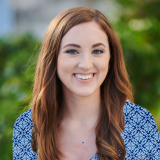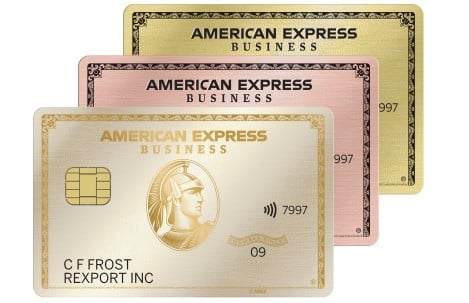SBA Loan Rates 2025
SBA loans offer the lowest rates on the market, but rates can change based on the Federal Reserve's actions.
Many, or all, of the products featured on this page are from our advertising partners who compensate us when you take certain actions on our website or click to take an action on their website. However, this does not influence our evaluations. Our opinions are our own. Here is a list of our partners and here's how we make money.
Concerned about tariffs?
Many small-business owners are under increased economic stress and uncertainty following the latest tariff announcements. NerdWallet is here to help you find answers for whatever you're looking for. Here are some resources to help you get started:
Need emergency funding? Consider a business line of credit.
Looking for fast access to working capital? Discover the best working capital loans.
Want tips on how to mitigate the impact of tariffs? Read our guide.
SBA loan rates are the lowest they've been in over a year, thanks to a series of rate cuts by the Federal Reserve. Keep reading to view current SBA loan interest rates, learn how SBA loan rates are determined and what fees apply to different SBA loans.
How much do you need?
We’ll start with a brief questionnaire to better understand the unique needs of your business.
Once we uncover your personalized matches, our team will consult you on the process moving forward.
Current SBA loan interest rates
The SBA's maximum rates are based on the daily prime rate, which changes based on actions taken by the Federal Reserve.
SBA 7(a) loan rates
The 7(a) loan is the SBA’s most popular business loan and offers a flexible sum of cash for a variety of uses, including managing daily operations, purchasing new products and refinancing high-interest loans. The loan size determines interest rates for SBA 7(a) loans, and rates can be fixed or variable.
Fixed rates:
SBA loan size | Maximum interest rate |
|---|---|
$25,000 or less | 15.5%. |
$25,001 to $50,000 | 14.5%. |
$50,001 to $250,000 | 13.5%. |
$250,001 or more | 12.5%. |
*Rates calculated with the current prime rate of 7.5%. Updated April 2025. | |
Variable rates:
SBA loan size | Maximum interest rate |
|---|---|
$50,000 or less | 14%. |
$50,001 to $250,000 | 13.5%. |
$250,001 to $350,000 | 12%. |
$350,001 or more | 10.5%. |
*Rates calculated with the current prime rate of 7.5%. Updated April 2025. | |
Use our SBA loan calculator to estimate your monthly loan payments, including interest and fees.
SBA 504 loan rates
Business borrowers looking to buy land, buildings or major equipment with long-term, fixed-rate financing can apply for SBA 504 loans. These loans are partially funded by certified development companies (CDCs), nonprofit organizations focused on community economic development.
Interest rates for SBA 504 loans are tied to the 10-year U.S. Treasury note and are typically around 5% to 7% of the amount financed.
How SBA loan rates are set
The SBA sets interest rate guidelines for lenders, which helps keep small-business owners' borrowing costs low.
How SBA 7(a) rates are set
Interest rates for SBA 7(a) loans are negotiated between the borrower and lender, but subject to the SBA's maximums. The SBA publishes the maximum fixed interest rates on its FTA wiki on a monthly basis.
The maximum rates for variable rate loans change based on the size of the loan:
Loan size | $50,000 or less | $50,001 - $250,000 | $250,001 - $350,000 | $350,001 or more |
Maximum interest rate | *Prime + 6.5% | *Prime + 4.5% | *Prime + 4% | *Prime + 3% |
*The current prime rate, as of April 2025, is 7.5%. | ||||
These interest rates apply to all loans within the 7(a) program, including SBA Express loans. Export working capital program loans are the only exception to this rule; lenders can set their own interest rates on EWCP loans.
Remember that interest rates make up only part of your expenses. Your APR reflects your true cost of borrowing, including your interest rate and all fees associated with the loan.
SBA 7(a) loan terms
7(a) loans max out at $5 million (there is no minimum loan amount.
The SBA guarantees 85% of your loan if it’s less than $150,000 and 75% if it’s more than $150,000.
The maximum amount that SBA will guarantee is $3.75 million.
How SBA 504 rates are set
SBA CDC/504 loans require collateral — typically the assets that are being financed — along with personal guarantees from the principal borrowers. Interest rates are tied to the 10-year Treasury note and are typically 5% to 7% of the amount finances.
SBA 504 loans typically require a down payment of at least 10% of the cost of the project. A traditional lender, such as a bank, puts up 50% of the loan, and a certified development company (CDC) puts up as much as 40%. The SBA guarantees 100% of the CDC portion of the loan.
SBA 504 loan terms
504 loans are available in 10-, 20- or 25-year terms.
The maximum loan amount is $5 million. (Select projects may qualify for $5.5 million).
Funding of the loan is split between the borrow, the bank and a community development company.
SBA 7(a) loan fees
SBA 7(a) loans come with two types of fees: guarantee fees and annual service fees. Guarantee fees cover the SBA’s costs in case of default, while service fees compensate lenders for making and administering loans.
7(a) loan guarantee fees are based on the loan amount and maturity date and apply only to the guaranteed portion of the loan. Lenders are required to pay the SBA the guarantee fee, but some pass the expense on to you. However, the SBA limits the maximum amount you will be charged.
The SBA sets and announces guarantee fees every fiscal year. For the 2025 fiscal year, which runs from Oct. 1, 2024 to Sept. 30, 2025, the fees are as follows:
Loans with terms of 12 months or less:
Loans of $150,000 or less: 0.25% of the guaranteed portion.
Loans from $150,001 to $700,000: 0.25% of the guaranteed portion.
Loans from $700,001 to $5 million: 0.25% of the guaranteed portion.
Loans with terms exceeding 12 months:
Loans of $150,000 or less: 2% of the guaranteed portion.
Loans from $150,001 to $700,000: 3% of the guaranteed portion.
Loans from $700,001 to $5 million: 3.5% of the guaranteed portion of the loan up to and including $1,000,000, plus 3.75% of the guaranteed portion over $1,000,000.
SBA 504 loan fees
SBA 504 loan terms are primarily made up of the following:
An interest rate based on the Treasury bond rate.
A guaranty fee that is paid to the SBA.
A servicing fee that is paid to the CDC.
A fee paid to the central servicing agent.
When applying, you'll be quoted an effective interest rate, which is the sum of those three fees and the Treasury bond rate. However, you'll may also have to pay a guarantee fee, CDC fee, as well as some additional fees, meaning your total cost of borrowing (or annual percentage rate) will be slightly higher than your effective rate.
» MORE: Can you have multiple SBA loans?





